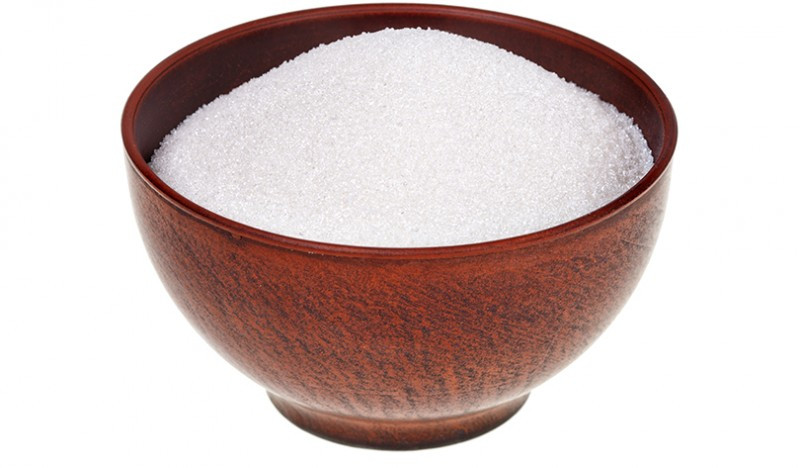We recently blogged in this space about how sugar can be Public Enemy No. 1 for people who aren't careful with their diets and consume an excess amount of added sugar (sugar in addition to already comes in their regular diet). Americans as a whole have been eating way too much sugar for too long, and the consequences are showing up in unwanted health issues such as heart disease, diabetes, obesity, mental health issues, and even acne problems. Cutting back on sugar – way back in some cases – is a recommended course of action for many people, whether due to diabetes, for weight loss, or other reasons, but it is easier said than done. Two factors can help make a difference. One is guidance; the other is discipline. The former is something we are providing here; the latter is something you need to figure out, keeping in mind the choices you make could even be a matter of life and death.
Sugar Reduction Tips
Going cold turkey when it comes to consuming added sugar and high fructose corn syrup probably is not a sound long-term strategy. Denying yourself 100 percent – no more soft drinks, no cakes, no cookies, no sugar in the coffee or on the cereal – is unrealistic, beyond, say, a week. Once you break it, the floodgates might open back up. Following are several tips, per healthline.com, that can help you reduce the amount of sugar without leaving you in a life of misery:- Eat whole fruits as standalones in place of sugar-sweetened fruit smoothies.
- Instead of totally cutting out cereals, granolas, and granola bars, focus on buying and eating those with fewer than four grams of sugar per serving.
- Ditch the sweetened salad dressings, and use olive oil and vinegar instead.
- Use natural nut butters in place of sweet spreads like Nutella.
- Keep a food diary so you can see where you are adding sugar to your diet.
- Substitute your use of table sugar for an artificial sweetener in your morning coffee.
- Next time you go for a soda, energy drink, juice, or sweetened tea, reach instead for a bottle of water or sugar-free seltzer (if you crave carbonation).
Healthy Sweet Substitutes for Sugar
If you still have a hankering for something sweet without having to go bland or eat or drink something you really don't want, there are some trade-outs you can make in your diet to keep things sweet without piling on the pure refined sugar. Always be sure to discuss any of this with your physician, such as if you are diabetic, so as to steer clear of sugar alternatives that might raise your blood sugar anyway:- Cinnamon. Cinnamon is sweet and a healthy add for just about anything where otherwise a teaspoon of sugar (or more) would be going. Try adding some in your coffee, into that bowl of oatmeal, or sprinkled atop a brown rice cake.
- Coconut sugar. Per aplaceformom.com, this natural sweetener can be used as a straight-up replacement for white or brown sugar. Because it is not refined, it shouldn't produce fluctuations in your blood sugar.
- Honey. This common pantry item is a no-brainer, although you still must be careful in how much you consume because, as does sugar, honey breaks down into glucose and fructose, too much of which can lead to the same kind of health problems. On the other hand, honey does have a significant edge on sugar because it is considered heart healthy and an anti-inflammatory.
- Stevia extracts. Because it is several times sweeter than sugar, you can use less of it to get the same taste benefit, and yet it is non-caloric, likely won't lead to significant weight gain, most are great to substitute for sugar in baked goods, and studies show that it is considered safe for diabetics, per aplaceformom.com.
- Chicory. It is sourced from the root of a perennial plant, has a very low glycemic index, and it comes complete with key B vitamins and minerals such as iron and magnesium that have their own health benefits. It does have some calories, but used in moderation it can be a nice Plan B vs. sugar. Also, per nutritiouslife.com, read the labels and seek chicory that is not mixed with added sugars and sugar alcohols.
- Maple syrup. This is what you get when you boil down the sap from maple trees. Pure maple syrup is very sweet and wholly natural and unprocessed, and can also be found in hard, candy form and ground down into granules. Yes, it is high in calories, but not only is it delicious, per nutritiouslife.com, it contains manganese (good for supplying energy for your body) and zinc (for boosting immunity).
- Monk fruit. In its pure form, it's about as good as it gets for a sugar substitute. It comes from a type of melon grown in Southeast Asia and is an all-natural sweetener free of calories and registers zero on the glycemic index, per nutritiouslife.com. Much sweeter than sugar, it has antioxidants and is believed to support the immune and respiratory systems, and the digestive tract.

